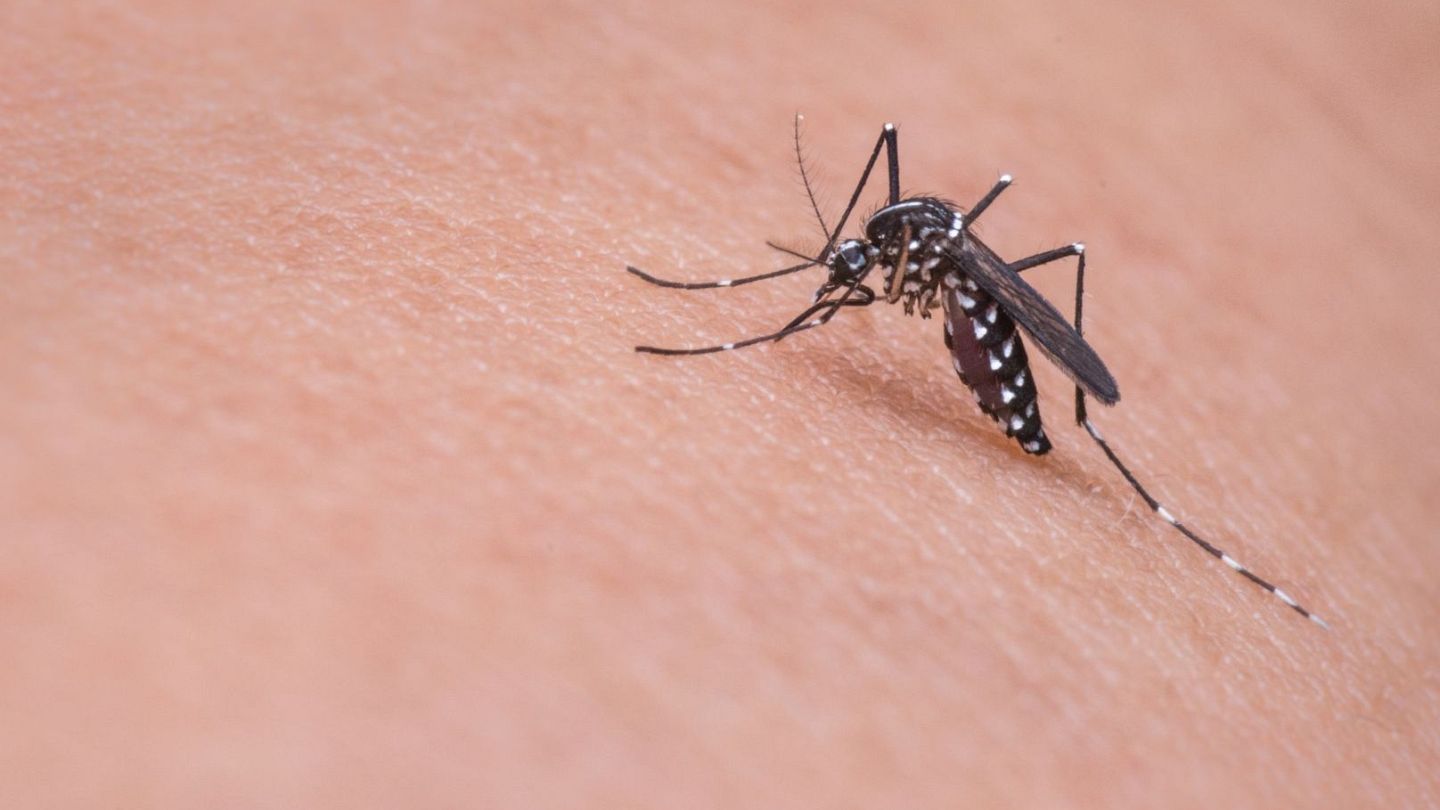Mosquito-borne diseases are a growing problem in Europe. How can they be kept in check?
Some climate researchers believe diseases typically found in tropical regions, such as dengue and chikungunya, could become endemic in Europe.
Europe is in for a long, hot summer – and with it, a swarm of mosquitoes.The insects are more than just pesky. Some mosquito species carry illnesses such as Zika, West Nile virus, dengue, and chikungunya – and outbreaks of these diseases, typically found in tropical and subtropical climates, are becoming more common in Europe as a result of increased travel and warmer weather driven by climate change.Last year, there were 1,436 cases of West Nile virus and 304 dengue infections acquired in Europe, up from 201 the previous two years combined, according to the European Centre for Disease Prevention and Control (ECDC).Italy made up 238 of those dengue cases, the largest outbreak the bloc has ever seen.This may be another record-breaking year. France already has seven active outbreaks of chikungunya this summer, which the ECDC said indicates the mosquito season started earlier than usual.“It’s an exponential curve,” Jan Semenza, an environmental epidemiologist at Umeå University in Sweden, told Euronews Health.Dengue can spread easily because most infected people have no or mild symptoms, but it can cause severe illness and death. The most common symptoms are fever, headache, body aches, nausea, and rash.Chikungunya is rarely fatal, but it can cause similar symptoms to dengue as well as debilitating joint pain that can last months or even years.Semenza and other scientists believe these diseases could soon become endemic in Europe.One recent study found that if a new mosquito species arrived in a European country in the 1990s, it would take about 25 years for a major outbreak to occur. Now, it’s under five years.“That time span has collapsed dramatically,” Semenza said.Outbreaks in Europe are still small compared to the rest of the globe. So far in 2025, there have been more than three million dengue cases and 220,000 chikungunya cases worldwide. More than 1,400 people have died from dengue and there have been 80 chikungunya deaths worldwide.But other vector-borne diseases could soon emerge as public health threats, as well. The mosquito species that spreads yellow fever, once eliminated in Europe, has reappeared in Cyprus.“We are very concerned that Europe could potentially be invaded by this aggressive mosquito,” Semenza said.What can be done to combat mosquito-borne diseases?Semenza said that while it’s impossible to eliminate mosquitoes altogether, governments can do more to prevent them from spreading disease. They could, for example, boost surveillance in hotter southern European countries during the summer, particularly around airports and other transit hubs where people might unknowingly bring viruses in.“We want to make sure that if a passenger arrives from a dengue-active area, that if that person has the virus in [their] blood, we would like to isolate that individual as quickly as possible to make sure that he or she doesn't get bitten by a mosquito, because then you have these larger outbreaks,” Semenza said.Spain is taking some steps to minimise the risks. People can submit photos of mosquitoes to an app that uses artificial intelligence (AI) to identify the species and issue an alert if it hasn’t been detected in that area before. Regional health authorities can then take steps to prevent infections.This “citizen science” programme has helped officials identify invasive Asian tiger mosquitoes, which can carry dengue and chikungunya viruses, in 156 municipalities since 2023, according to the Spanish health ministry.Meanwhile, the ECDC said people can take steps to minimise their own risks from mosquitoes , including using insect repellent and wearing long sleeves and trousers at dusk and dawn, when mosquitoes are most active.Travellers returning from countries where these viruses are endemic – most parts of Central America, South America, and the Caribbean – should maintain these precautions for at least three weeks after their return to Europe to prevent mosquitoes from biting them and spreading any viruses locally, the agency said.Other climate scientists say European countries grappling with the reemergence of mosquito-borne diseases should take lessons from regions where they have long been endemic, such as sub-Saharan Africa, Asia, and the Americas.“In Europe, it's definitely a seasonal disease,” Semenza said. “But we see the season expanding, and we'll see more and more cases”.


